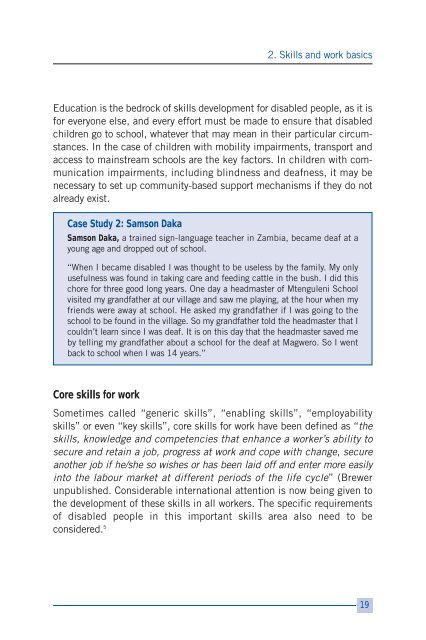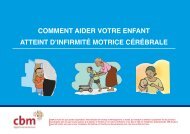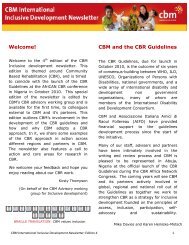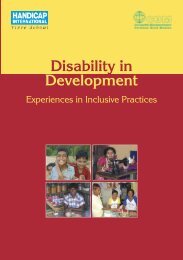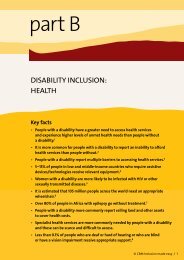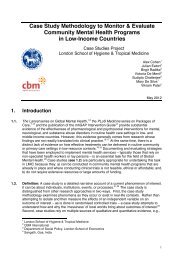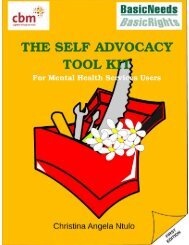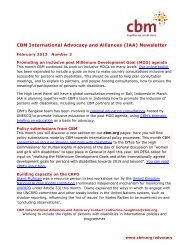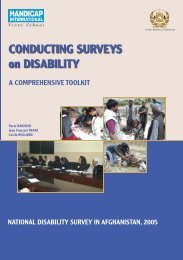Skills Development through Community Based Rehabilitation (CBR)
Skills Development through Community Based Rehabilitation (CBR)
Skills Development through Community Based Rehabilitation (CBR)
You also want an ePaper? Increase the reach of your titles
YUMPU automatically turns print PDFs into web optimized ePapers that Google loves.
2. <strong>Skills</strong> and work basics<br />
Education is the bedrock of skills development for disabled people, as it is<br />
for everyone else, and every effort must be made to ensure that disabled<br />
children go to school, whatever that may mean in their particular circumstances.<br />
In the case of children with mobility impairments, transport and<br />
access to mainstream schools are the key factors. In children with communication<br />
impairments, including blindness and deafness, it may be<br />
necessary to set up community-based support mechanisms if they do not<br />
already exist.<br />
Case Study 2: Samson Daka<br />
Samson Daka, a trained sign-language teacher in Zambia, became deaf at a<br />
young age and dropped out of school.<br />
“When I became disabled I was thought to be useless by the family. My only<br />
usefulness was found in taking care and feeding cattle in the bush. I did this<br />
chore for three good long years. One day a headmaster of Mtenguleni School<br />
visited my grandfather at our village and saw me playing, at the hour when my<br />
friends were away at school. He asked my grandfather if I was going to the<br />
school to be found in the village. So my grandfather told the headmaster that I<br />
couldn’t learn since I was deaf. It is on this day that the headmaster saved me<br />
by telling my grandfather about a school for the deaf at Magwero. So I went<br />
back to school when I was 14 years.”<br />
Core skills for work<br />
Sometimes called “generic skills”, “enabling skills”, “employability<br />
skills” or even “key skills”, core skills for work have been defined as “the<br />
skills, knowledge and competencies that enhance a worker’s ability to<br />
secure and retain a job, progress at work and cope with change, secure<br />
another job if he/she so wishes or has been laid off and enter more easily<br />
into the labour market at different periods of the life cycle” (Brewer<br />
unpublished. Considerable international attention is now being given to<br />
the development of these skills in all workers. The specific requirements<br />
of disabled people in this important skills area also need to be<br />
considered. 5<br />
19


